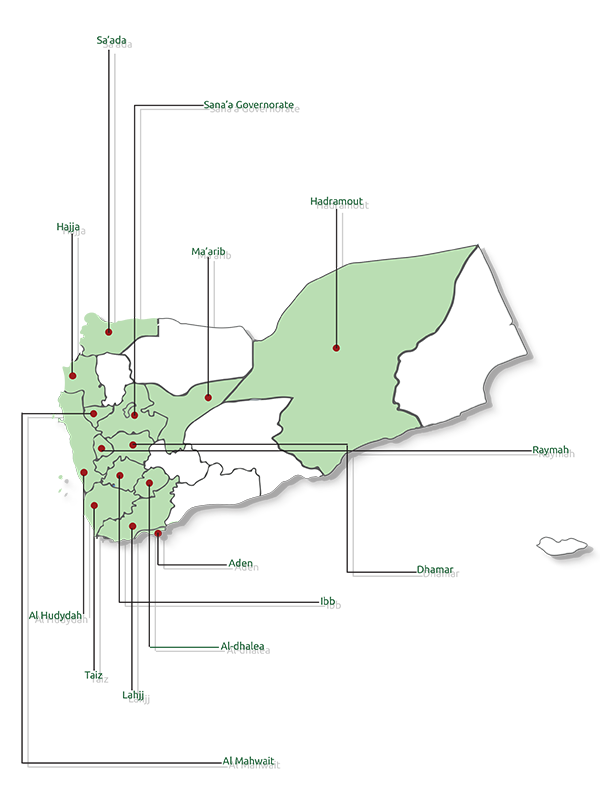ADO a well-established national, humanitarian, development, non-governmental and non-profit Organization.
ADO is one of the premier organizations that has been operating in Yemen Since 1996 adopting a strong need-based approach in its work to reach the most vulnerable women, children, displaced, and host communities in deprived rural areas located on the coast of Tihama.
Since it was established, ADO has always stood for multi-sectoral integrated response so strongly that it has won the confidence of most UN agencies and obtained several funds for its projects.
ADO is distinguished for women represent the cornerstone of its interventions.
ADO is also admired for it has a well-defined methodological approach that includes community participation attributed to its belief that change starts from the community itself.
ADO work on all Yemeni governorates as initiatives, connections and humanitarian projects on all sectors. ADO served more than 9.000.000 until march 2025.


Methodology
Needs Assessment: Conducting a comprehensive needs assessment is critical to understanding the immediate needs of affected populations. Coordination and Cooperation: Establishing effective coordination mechanisms and strengthening collaboration between humanitarian agencies, local authorities, and communities is vital. Pre-positioning of supplies: Pre-positioning essential supplies, such as food, water, medical supplies, and shelter materials, is critical for rapid response in Yemen.
Cash assistance: Providing cash assistance instead of in-kind assistance can enable affected populations to meet their immediate needs. Adaptive programming: Responding and adapting to the evolving needs and context in Yemen is critical. Implementing flexible programming allows for rapid adjustments based on emerging priorities and ensures that assistance reaches the most vulnerable populations.
Community engagement: Engaging with and involving affected communities throughout all phases of the response is essential.
Accountability and monitoring: Establishing monitoring and feedback mechanisms is important to ensure accountability and improve the quality of assistance.
Capacity building: Strengthening local capacities and skills is essential for managing a sustainable and effective rapid response.
